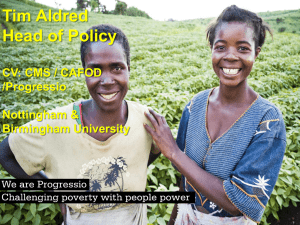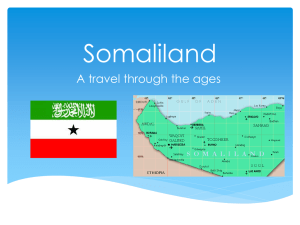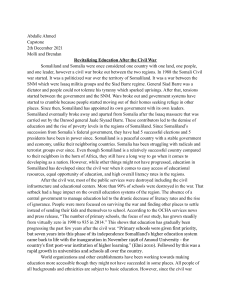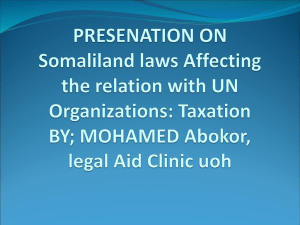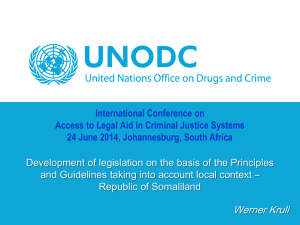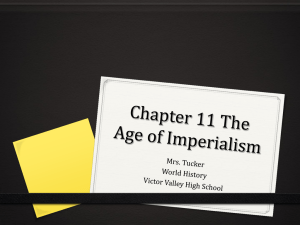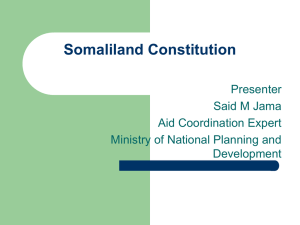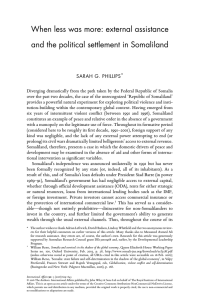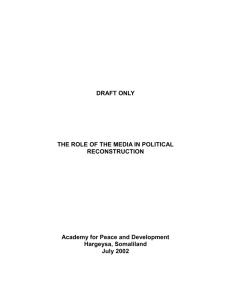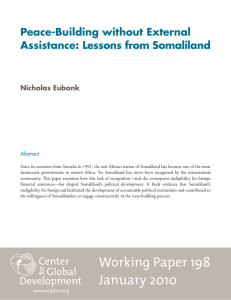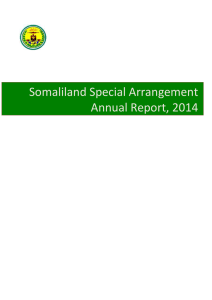- About HCS
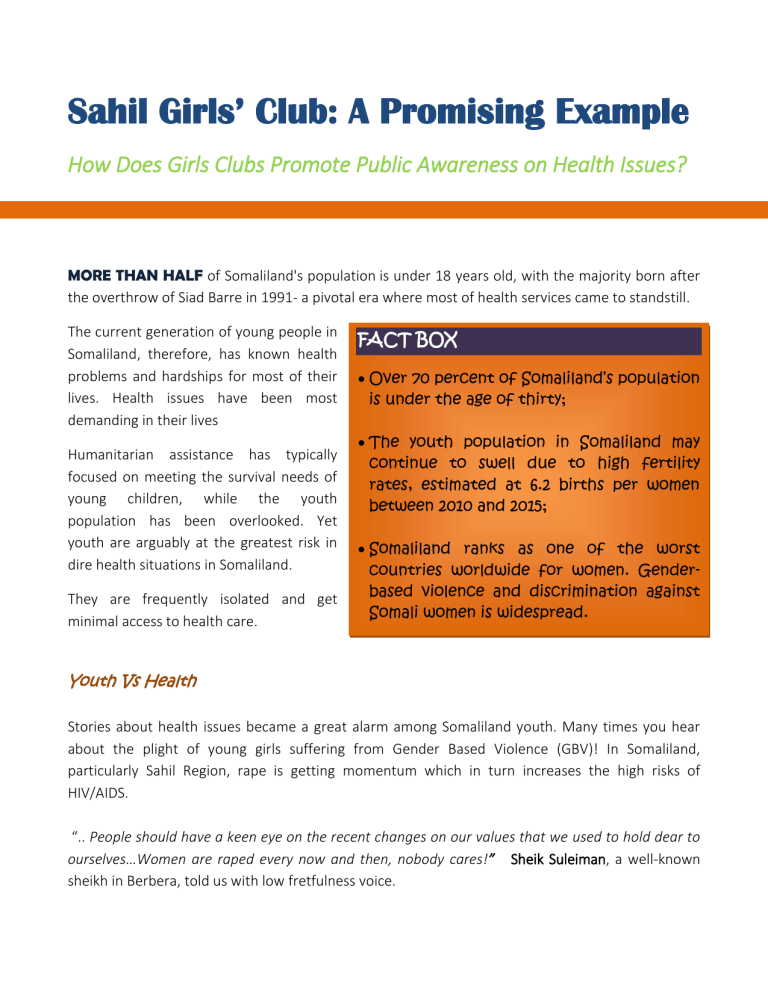
Sahil Girls’ Club: A Promising Example
How Does Girls Clubs Promote Public Awareness on Health Issues?
MORE THAN HALF of Somaliland's population is under 18 years old, with the majority born after the overthrow of Siad Barre in 1991- a pivotal era where most of health services came to standstill.
The current generation of young people in
FACT BOX
Somaliland, therefore, has known health problems and hardships for most of their lives. Health issues have been most demanding in their lives
Humanitarian assistance has typically focused on meeting the survival needs of young children, while the youth population has been overlooked. Yet youth are arguably at the greatest risk in dire health situations in Somaliland.
They are frequently isolated and get minimal access to health care.
Over 70 percent of Somaliland’s population is under the age of thirty;
The youth population in Somaliland may continue to swell due to high fertility rates, estimated at 6.2 births per women between 2010 and 2015;
Somaliland ranks as one of the worst countries worldwide for women. Genderbased violence and discrimination against
Somali women is widespread.
Youth Vs Health
Stories about health issues became a great alarm among Somaliland youth. Many times you hear about the plight of young girls suffering from Gender Based Violence (GBV)! In Somaliland, particularly Sahil Region, rape is getting momentum which in turn increases the high risks of
HIV/AIDS.
“.. People should have a keen eye on the recent changes on our values that we used to hold dear to ourselves…Women are raped every now and then, nobody cares!” Sheik Suleiman, a well-known sheikh in Berbera, told us with low fretfulness voice.
Yet despite of the overwhelming odds, these same young people have often demonstrated enormous resilience to survive. With adequate support, guidance and skills, they can provide the foundation for increasing public awareness on health issues.
" The Somaliland youth are not
Their participation in health issues is of a huge priority and can empower them to be agents of positive change in their society.
only the leaders of tomorrow, but also the partners of today."
…
Being generous to Youth!
The generous help from European Commission
(EC) through Health Poverty Action (HPA) on a project called Non-State Actors ( NSA), has helped the youth in Sahil Region in many ways. HPA gave the youth a platform to get-to-gather and debate about their health-related problems- particularly FGM practices, Child spacing, Sexual Reproductive
Rights and HIV/AIDS. In this way, Sahil youth are fast becoming leaders in their distressed society, using youth groups to give voice to the concerns of their generation
Health Poverty Action has established four girls clubs in Berbera and Sheikh high schools to mobilize school girls to disseminate knowledge of SGBV, FGM, FP, HIV/AIDS and SRH among themselves. This has gradually increased their public awareness and education about health vices.
HPA conducted regular training workshops through participatory-based learning principles.
This was aimed to build the capacity of peer educators and provide better understanding of the concepts of skills-based peer-led health education.
Hope REVIVING…
Nonetheless, Sahil Girls Clubs are unique in their focus on community mobilization particularly youth. They are promoting greater public awareness about issues such as Female Genital
Mutilation (FGM), Sexual Reproductive Health (SRH) and HIV/AIDS. The youth in Sahil are moving
forward and becoming leaders in one of the most challenging environments in the world that is in
Somaliland.
Sahil Girls Clubs are now equipped with skills and knowledge, as a result of peer-education, to conduct future life-skills for the youth in schools.
The HPA Non State Actor’s project offered capacity support to the trained youth who in turn reached more than 500 youth in various schools. Certain schools have continued to sustain peer education activities. This remarkably supported youth to exchange their views on issues they consider of holding much water for them!
It further helped them develop action plan for mass mobilization and awareness-rising among youth. So then hope is taking on the surface again!
SIDE STORY
AYAN ABDILAHI AWALEH, 24 years old, married but then living with her family. She now lives in Berbera but she originally came from Borama- Awdal. Ayan is jobless and depends upon her brother who works at Sahil
Governor’s Office in Berbera. Her brother pays their family’s rent monthly.
She got involved with HPA program through Training of
Trainers about Community Conversation held in
YOVENCO.
She also sought for health services at MCHs supported by
HPA on a number of occasions. She looked for Vitamin F to reduce acne and pimples on her face. Before the HPA programme in Sahil, she used to go to Hargeisa for any health services.
But now she is healthier and happier.
Ayan Awaleh had faced financial problems when she finished her secondary school and could not be able to go for further studies.
“
I am very luck…” she
says. “
